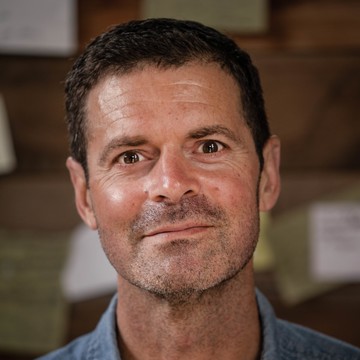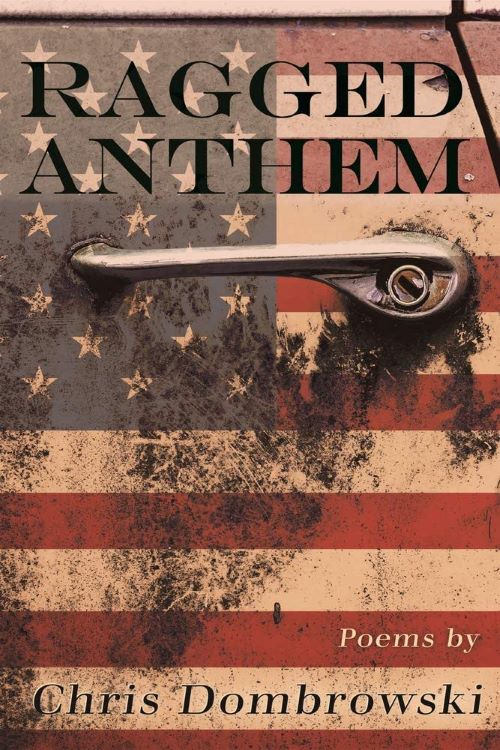Before drafting “Just a little green,” I had been mulling, per longstanding habit, the early death of a beautiful young woman. My beloved’s passing of brain cancer at age 19 may well have been “the most poetical subject in the world,” to manipulate a line from Poe, but for the better part of two decades it had eluded me in verse. Given the themes, industry-ravaged setting, and emotional tenor of the manuscript I was working on at the time (Ragged Anthem), I sensed this unwritten poem would fill a lacuna, but it nonetheless evaded pursuit. One October day after an unproductive session, I put down the pen and walked a few blocks to our neighborhood creek, where when stoppered I often sit and imagine the water running through my cranium, flushing out the mental detritus. From my seat alongside Rattlesnake Creek, I looked upstream toward the high-elevation wilderness snowfields that framed and fed the floodplain. The water at my feet had once resided there, and before that it existed as moisture trapped inside a cloud, and perhaps before that as fog, the slough’s breath, the valley’s exhalation, ad infinitum. This was doubtless rudimentary elemental positing, but the mere proximity to moving water had at least succeeded in getting me “out of my head.” Before long I noted a massive cumulus that came stooping downlight on a westerly, its shadow washing over the valley. It looked long traveled; its features registered. On my walk home, I passed a chalk drawing some neighborhood children had made on the street and sensed an incision point.
What Sparks Poetry is a serialized feature that explores experiences and ideas that spark the writing of new poems.
In Ecopoetry Now, invited poets engage in an ecopoetic conversation across borders. In poems and poetics statements, their work describes important local differences, including bioregion and language, as well as a shared concern for the Earth. We hope to highlight poetry’s integral role in creating and sustaining a broadly ecological imagination that is most alive when biologically, culturally, and linguistically diverse.
Chris Dombrowski on “Just a little green, like the nights when the northern lights perform”
Writing Prompt
I trust “the primacy of immediate experience” (Jenna Rozelle) and the faculty of wonder—what one writer defined as “the unsentimental ability to identify with astonishment the earth and its inhabitants as relational”—to illuminate fertile poetic paths and forms (see David Wade’s Li: Dynamic Form in Nature). At ridgeline, for instance, where the forest fire raged last summer, the morel mushrooms will pop in late May and congregate most densely where the fire burned the hottest, exploding ponderosas from root system to crowns, agitating the soil and loosing fungal spoors. The elemental reconstitution—or current manifestation, if you will— of the scorched forest that is the morel pushes back against my elegiac tendencies. It is, along with a ball-capful of others, not only an impeccable topping on the grilled sirloin of an elk that once foraged the same terrain, but also, with apologies to Milosz, “the more spacious form” to which I aspire.
In lieu of a saucepan sizzling with morels, here’s a prompt:
Listen to Joni Mitchell’s Blue all the way through. Okay, listen to the entirety of any album you’ve pretty much memorized and which served as the soundtrack to a period in your past. Along the way collect lines; one of these will serve as your title.
Spend some time walking or sitting near moving water.
For an opening line, say something preposterous but impossible to disprove. The opening line to “Just a little green” was inspired by this doozy from the novella Westward Ho, by that feral genius Jim Harrison:
“In Westwood, Brown Dog recognized a cloud as one he had seen several years before over two thousand miles to the east out near Fayette on Big Bay de Noc. The cloud was sure enough the same one, no question about it. The question was what route did it take to California, to Westwood in particular?”
Formally, perhaps experiment with couplets or quatrains and approximate end-rhyme. (“Just a little green” employs like-sound scantly in each quatrain, until the final stanza where the slant-rhyme becomes amplified and more prevalent.)
“Try to put,” as Brenda Hillman once urged a group of MFA poets at University of Montana twenty-some years ago, “your whole world view into a poem.”
— Chris Dombrowski
Share This Post
Print This Post

Chris Dombrowski
Chris Dombrowski is the author of three collections of poetry, most recently Ragged Anthem (Wayne State University Press, 2019), and two books of nonfiction, Body of Water and The River You Touch (Milkweed, 2016; 2022). He teaches in the MFA Program at the University of Montana.



